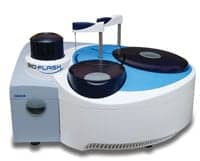Artificial Intelligence is often depicted as a godsend or a nightmare. Having the right perspective will keep it what it’s meant to be a useful tool for clinical laboratories.
By Chris Wolski
Discussions about artificial intelligence seem to be everywhere in the zeitgeist. The opinions form two broad camps. Optimists say that artificial intelligence will be a benefit, freeing us from mundane tasks and simplifying our lives. The doomsayers, evoking HAL 9000 and the Terminator, paint a nightmare scenario in which human beings become irrelevant.
Personally, I come down somewhere in the middle on artificial intelligence. While there’s no escaping it—I neither see it as a panacea that will solve all my problems nor as a means to become enslaved to robotic overlords out to rule me.
But I do think we need to have the right perspective on artificial intelligence.
What is the right perspective as we inevitably move to an era in which smarter and smarter machines replace some of our traditional tasks? An e-mail I received from a research firm called Venture Smarter summed it up nicely:
“There are some professions that AI will likely not replace (medical professions among them according to Venture Smarter—editor). They predominantly involve complex human interactions, creativity, empathy, or specialized manual skills that are difficult to replicate with current AI technologies.”
Machines certainly are incapable of creativity or empathy. Without human intelligence, we wouldn’t be making massive strides every day in developing new tests for old and new diseases. Artificial intelligence can help—and does—but it certainly can’t think through a problem in the same way and with the same depth as a human at a bench.
Maybe what’s really at issue with the trepidation that so many of us feel about artificial intelligence is the “intelligence” part of the equation. Intelligence is what makes us human—it’s evoked in our species’ scientific designation homo sapiens, i.e., wise men. I think it’s the threat to that fundamental part of us that’s elicited so much push back and even fear.
So, is artificial intelligence ushering clinical labs and society as a whole into an uncharted brave new world? As long as we value human intelligence over the artificial, I don’t think so.
Chris Wolski is chief editor of CLP.






Great article! I found the information you shared to be really insightful and helpful. Thanks for sharing your expertise.